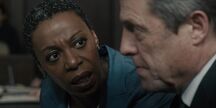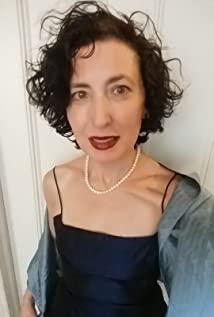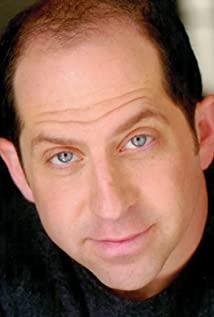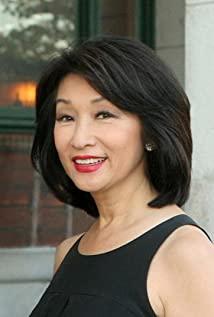I originally started this show with a curiosity. I wanted to see how our consultant was fancyly hacked in the film and television series. But after watching the first episode, I found out that the female protagonist didn’t even have an interview with Lai. She didn't plan to kill people and didn't help the police read her mind, she was really a serious consultant! Although what she said to the three clients in the play seemed too direct because of the rhythm of the TV play, it is entirely possible that they will appear in the real consultation. It can be seen that the original author or screenwriter has worked hard to verify the evidence.
The Chinese translation of the title Undoing is very bizarre, and probably only reflects the inaction of the translator. Undoing is a term in psychoanalysis, which means that the person who wants to deny/remove a certain negative thought or destructive behavior, and thus takes the opposite action. For example, because her parents did not allow her daughter to choose her favorite major, this female college student felt resentment towards them; when she noticed this idea, she felt terrified, so she counteracted her inner feelings by catering to her parents or caring about them. idea.
So contrary to doing nothing, people who fall into the Undoing state are very active in taking action. There is a kind of anxiety behind their actions: how can I think like this? How could things be like this? I must do something to make everything less bad. Reflected in the play, after the initial shock, confusion and fear, the heroine began to look for evidence that her husband was innocent. She followed the victim’s husband, questioned the police in charge of the case, and hired the most expensive defense lawyer. She became a little hysterical. She turned a deaf ear to the advice of her father and friends. The motivation behind it came from the illusion that she wanted to maintain her perfect life in the past. . The Wikipedia translation "Restore Life" describes this state more appropriately.
However, such actions often have no positive consequences. Grace in the play gets busier and chaotic. The result of constant efforts is to discover more and more lies. Her husband who has known each other for 20 years is like a complete stranger. He was not only the number one suspect in the murder, but also a repeat offender who was expelled from the hospital and killed his sister’s guiltless problem child.
In the play, Grace once questioned the police, thinking that they had fallen into tunnel vision and locked the suspicion only on one person. In fact, she had fallen into a narrow mindset and was eager to find the possibility that her husband was innocent. The reason is that people who fall into the Undoing state have an obsession in their hearts: they must go back to the past state. This obsession often leads people astray. No matter how strong the ability is, if the direction is wrong at the beginning, it may sink deeper and deeper. In the example of college students mentioned above, if there is no way to reduce her feelings of guilt and guilt, she may eventually develop into a certain neurosis (depression or anxiety).
From the perspective of the plot alone, this drama is not particularly good, but the performance of several leading actors gives a lot of points to the overall look and feel. What impressed me was that in several scenes in the play, Grace's single eye was given close-ups, which exposed the subtle expression changes of the characters to the audience's attention, and at the same time created some tense and terrifying suspenseful atmosphere.
If the character of Grace is very real from professional background to emotional transition, the character of Johnathan is more fictitious. At first I saw people saying "anti-social" and "PUA" everywhere, and I almost believed it. Later, I discovered that the show was clearly talking about narcissistic personality disorder (narcissistic personality disorder).
The basic characteristics of narcissistic personality disorder are the exaggeration of self-worth, self-centeredness, desire for praise, care, and admiration from others and take it for granted. The first reaction to criticism is anger and denial, believing that one should enjoy privileges that others do not have, and lack empathy for others. Because of this, it is often difficult for them to enter and maintain an intimate relationship. In a few cases, they will form an indestructible and painful symbiotic relationship with another type of patient-borderline personality disorder.
Of course, I know that the public likes the setting of "high-function XXX". With the powerful ability and charming appearance, the madness or abnormality contained in the characters can provide the viewer with a different kind of excitement. Therefore, It can attract the attention of some groups. However, no matter how high the function is, there are limits. How to grasp that limit so that the characters are real and not too boring will test the skill of the screenwriter. A good example is "Sherlock".
As a highly functional antisocial person, Sherlock can satisfy his general survival needs without causing harm to others, and learn social norms through excellent intelligence. However, in interpersonal communication, you can clearly feel his deviation from the norm. He does not have the right smile, the words and sentences that mediate, and the dilemma.
If he wants to, he can learn something like five or six or seven, just as he can always find a good reason when he wants to humiliate others.
It's just that he doesn't care. Yes, he never cared.
So he spends his time on drugs when he is bored, breaks into the crime scene when he is excited, and is never known for money from birth to death.
So Jonathan's character is too unreal. Even an ordinary woman who has not received any psychological training can infer the fact that her husband is cheating from the smell of her husband’s perfume or the sanitary napkins in her toilet. How could a woman who has been consulting for more than 20 years possible? Will the other half who can't get along day and night have a personality disorder?
In fact, in real work, we often can identify a person with a personality disorder in a few consultations. Of course, some people are smarter and better at disguising, but it is impossible to hide from the sky for more than 20 years. After all, disguise is limited.
If authenticity is aside, the character of Jonathan has a complex charm .
That night, even though a lot of his anger against Elena came from narcissistic rage: narcissists don’t like being threatened and hate losing control. At the same time, he fears that the good husband/good husband that he has worked so hard will be destroyed; but it’s hard to say it. There is not much love for his wife and children. Especially when he returned home after the incident, he made love to Grace with half nostalgia and half guilt (it was disgusting after thinking about it carefully...), and bid farewell to the child in the morning, which shows that there is a bit of true affection in his heart.
Mo Niang and Juan Fu are open lives. They don't adapt to others because they are different. On the contrary, they completely live out of themselves. This is not the case for people like Jonathan. His entire adulthood may have lived in a great contradiction and entanglement : on the one hand, he knows that his heart is not tolerated by the outside world, and he does not feel burdened by it; On the other hand, intellectually yearning for the kind of lifestyle recognized and admired by the society, so we must strive to manage another face.
With so many sentimental words, lies, excuses, persuasion, and threats he said, at the moment when the final sentence was pronounced, I think he himself must be at a loss: How true and false are these words?
Jonathan's life is just like the last chase scene. He didn't know where to go, he only knew that he had to just hold the steering wheel and hold everything in his hands. Only his closest person was in the car, and the enemy was chasing constantly behind the car. He tried to maintain his calm and calm air, but one day others would see through this mask. At that time, no matter how hard he pleaded or yelled, he could only see the people close to him go further and further away, leaving him alone and helpless.
View more about The Undoing reviews











